
by Dana Point Fish Company | Jan 23, 2015 | Clams, Fish and Seafood, Lobster, Recipes, Seafood, Shellfish and Seafood Recipes
New England Clambake on the Grill 6 dozen steam clams12 small onions6 medium potatoes6 ears of corn (in husks)6 live 1-pound lobstersLemon wedges (and melted butter) Points to Consider Before Taking Medication There are certain things that you can do in...
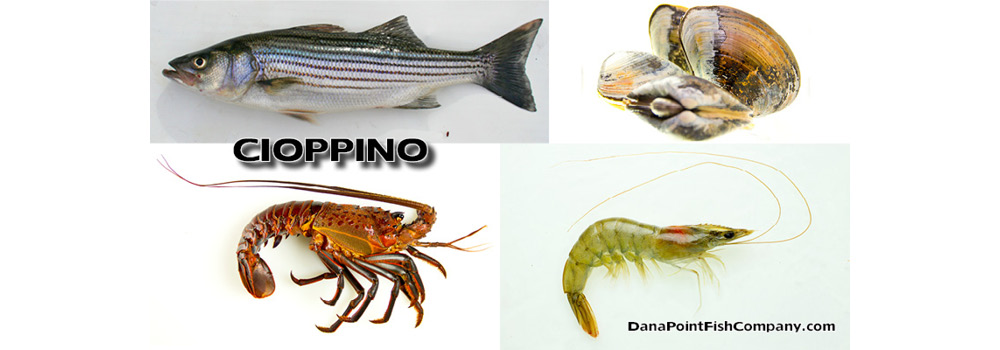
by Dana Point Fish Company | Jan 1, 2015 | Clams, DPFishCo, Fish Recipes, Lobster, Recipes, Shellfish and Seafood Recipes, Shrimp and Prawns
Cioppino is a stew that uses any number of mixed seafood, in their shells, cooked in a tomato based broth with red wine. It is messy and typically served with a bib in restaurants. Developed in the late 1800s to use up the catch hauled in by San Francisco fishermen,...
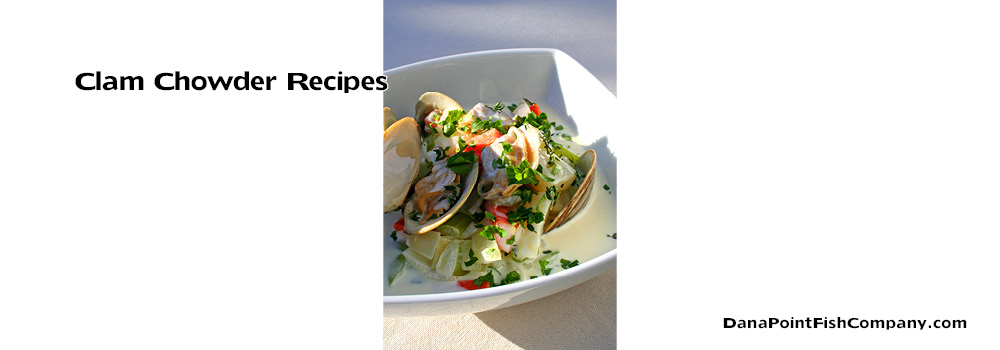
by Dana Point Fish Company | Jan 1, 2015 | Clams, DPFishCo, Recipes, Seafood, Shellfish and Seafood Recipes
Clam chowder is made today much the same way it was made a hundred years ago. Here are five different recipes for clam chowder to try that were published prior to 1925. And the cooks felt they each had the best recipe, quite notably “This chowder...
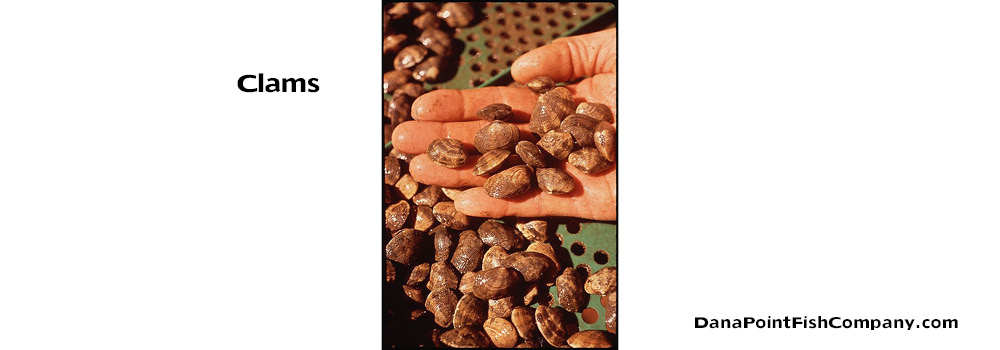
by Dana Point Fish Company | Nov 25, 2014 | Clams, DPFishCo, Saltwater Shellfish, Seafood, Species ID
Clams are bivalve mollusks, filter feeding, and are found in both freshwater and saltwater environments. They are filter feeders, and are harvested in both the wild and on clam farms. Clam diggers often look for the clam ‘show’ to identify a clam before...
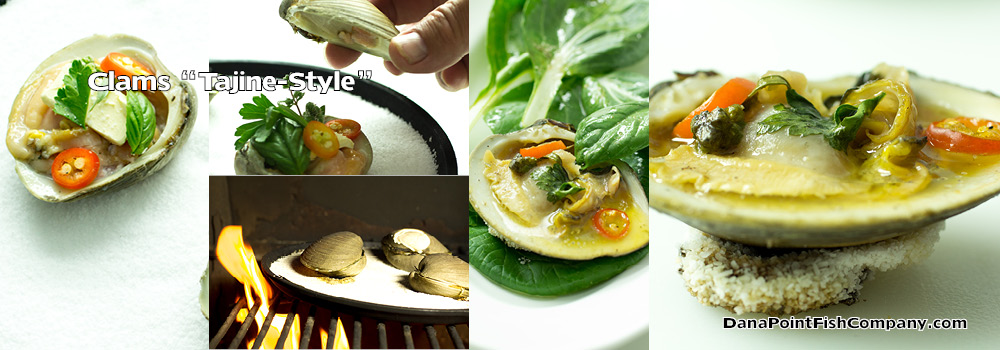
by Dana Point Fish Company | Jul 15, 2014 | Clams, Cooking Methods, DPFishCo, Mollusks, Recipes
A basic definition for tajine is below: A tajine or tagine is a historically Berber dish from North Africa that is named after the type of earthenware pot in which it is cooked. The traditional method of cooking with a tajine is to place the tajine over coals. A...
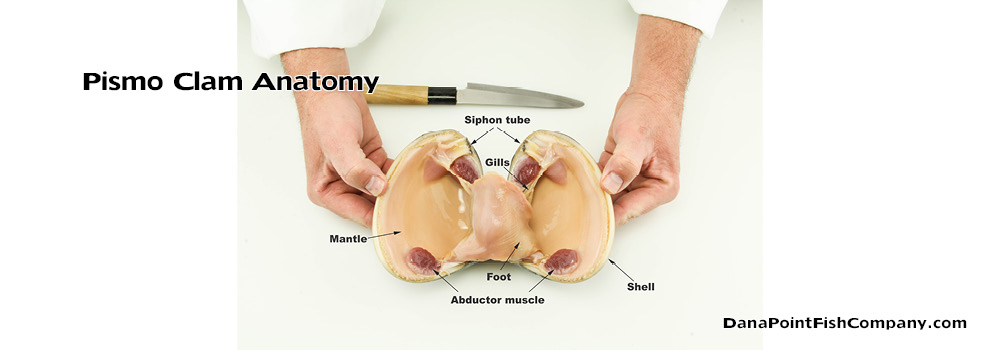
by Dana Point Fish Company | Jun 25, 2014 | Clams, DPFishCo, Mollusks, Seafood, Shellfish, Species ID, Univalves, Bivalves
The Pismo clam, Tivela stultorum, gets its name from the Chumash Indian word “pismu,” meaning “tar,” because of the natural deposits of tar found in the Pismo Beach area. Identifying Characteristics Pismo clams are large clams with a thick,...







